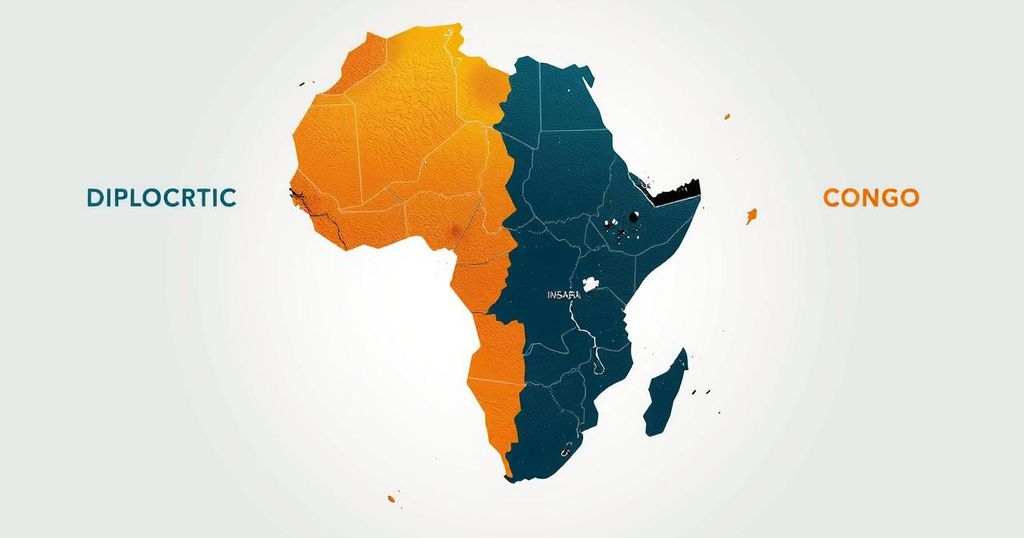Rwandan President Paul Kagame has criticized South African President Cyril Ramaphosa after Ramaphosa accused Rwanda of aiding the M23 rebels in the DRC crisis. Kagame denied the accusations and warned of potential confrontation. The situation is intensifying following the death of South African soldiers linked to recent fighting, raising questions about the role of external forces in the ongoing conflict in eastern Congo.
Rwandan President Paul Kagame has issued a sharp rebuke to South African President Cyril Ramaphosa following Ramaphosa’s allegations that Rwanda is supporting the M23 rebels in eastern Democratic Republic of Congo (DRC). Kagame characterized Ramaphosa’s claims as false and cautioned against potential conflict between the two nations. This dispute arises amid increasing tensions exacerbated by recent violence in the region.
South Africa currently maintains troops in the DRC under a United Nations peacekeeping mandate, alongside a separate Southern African Development Community (SADC) mission aimed at assisting Congolese forces. Amid escalating violence, South Africa has faced criticism following the death of 13 soldiers during fighting linked to the M23 militia, which is reportedly supported by Rwanda.
In a statement, Ramaphosa attributed responsibility for the soldiers’ deaths to the M23 and what he labeled as a “Rwandan Defense Force militia.” Defense Minister Angie Motshekga added that firing on South African forces could be interpreted as a declaration of war, exacerbating the diplomatic tensions with Rwanda.
Kagame responded strongly via social media, asserting that the Rwandan Defense Force should not be deemed a militia and emphasized Rwanda’s readiness to address any confrontational actions. He also contested the characterization of South African soldiers as “peacekeepers,” stating that the SADC troops were engaged in offensive operations.
Kagame noted that he had previously communicated with President Ramaphosa regarding South Africa’s actions in Congo, expressing skepticism about their true motives. South Africa’s Foreign Minister Ronald Lamola reiterated his country’s stance, alleging that Rwanda supports the M23, supported by findings from U.N. experts. Lamola highlighted the importance of achieving a ceasefire and ending hostilities in the region.
Eastern Congo, rich in minerals and bordering Rwanda, has been embroiled in conflict for over three decades, a situation originating partly from the 1994 Rwandan genocide. The Congolese government accuses Rwanda of exploiting the situation for its mineral wealth, which adds further complexity to the ongoing conflict in the region.
The tensions between South Africa and Rwanda primarily stem from accusations regarding support for the M23 rebel group in eastern Democratic Republic of Congo. This conflict is not new, as it has historical roots going back to the aftermath of the Rwandan genocide in 1994, when many perpetrators fled to Congo. The region has been unstable for decades, and the involvement of foreign troops has compounded these issues, prompting diplomatic exchanges and military responses from neighboring countries.
The escalating war of words between the leaders of South Africa and Rwanda highlights the intricate and often contentious dynamics surrounding the conflict in eastern Democratic Republic of Congo. While South Africa positions itself as a peacekeeping entity, allegations of involvement with rebel groups reflect deeper geopolitical tensions influenced by historical events. Both nations must navigate these challenges carefully to avoid further confrontation and seek diplomatic resolutions.
Original Source: www.voanews.com






